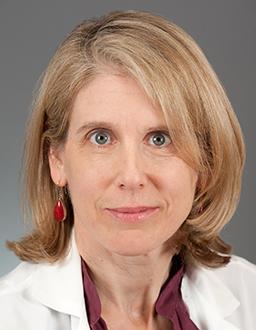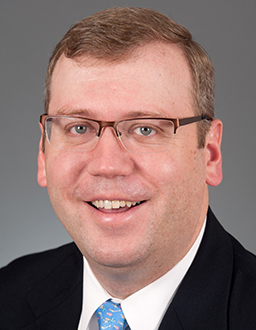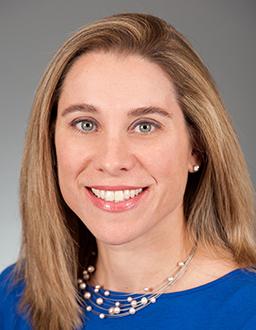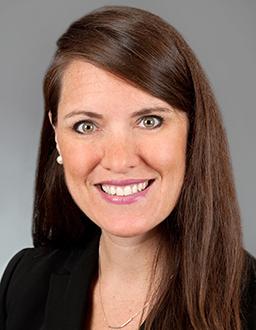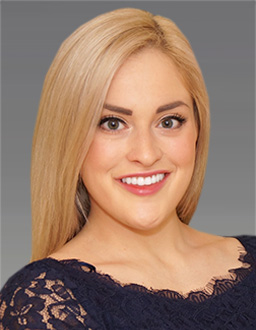Neonatal Neurocritical Care Fellowship
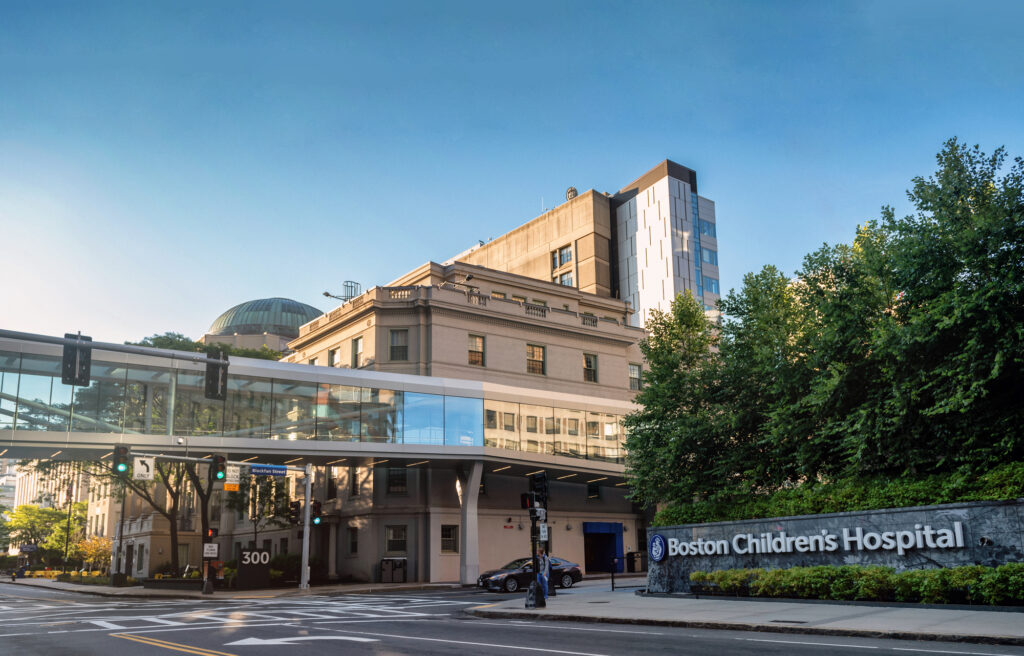
Advancing Expertise in Pediatric Neurology
Boston Children’s Hospital, a globally renowned institution that is frequently ranked the No. 1 children’s hospital in the United States, offers a Neonatal Neurocritical Fellowship designed to cultivate the next generation of experts in the field. This fellowship stands at the forefront of pediatric neurology, providing comprehensive training and unparalleled opportunities to engage with cutting-edge research and clinical practice. The fellowship training program began with Dr. Adre du Plessis, who came to Boston Children’s Hospital when Dr. Joseph Volpe began his tenure as chair of the Department of Neurology; Dr. du Plessis completed his fellowship in 1993. Dr. Janet Soul was the next fellow in 1998. There have been many fellows over the ensuing decades from the U.S. and other countries who are now leaders in neonatal neurology. Our current Neonatal Neurocritical Fellowship was formally approved by the United Counsel of Neurologic Subspecialities (UCNS) in 2024.
Overview of the fellowship program
The Neonatal Neurocritical Fellowship at Boston Children’s Hospital is an intensive, one-year clinically focused fellowship designed to advanced knowledge and skills in the diagnosis and management of unique neurological conditions affecting fetuses and neonates. The fellowship includes both inpatient training on our Neurocritical Care teams and outpatient training in our Fetal Care and Surgery Center (FCSC), Neonatal Neurology Program clinics, and numerous related subspecialty clinics. As time allows, there are opportunities to participate in clinical and translational research projects. A second fellowship year may be possible for candidates particularly interested in clinical or basic science research careers.
Objectives and goals
The fellowship is structured around several core objectives:
- Clinical expertise: To develop proficiency in the evaluation and treatment of a wide range of fetal and neonatal neurological conditions, such as congenital brain anomalies, brain injuries and other complications of preterm birth, hypoxic-ischemic encephalopathy, neonatal seizures, neuromuscular disorders, congenital and acquired CNS infections, complications from congenital heart disease, metabolic disorders, and neurogenetic disorders.
- Research and innovation: To encourage fellows to engage in groundbreaking research that advances the field of fetal-neonatal neurology. Fellows are provided with resources and mentorship to pursue original clinical research projects, contribute to peer-reviewed publications, and present at national and international conferences.
- Interdisciplinary collaboration: To emphasize the importance of collaboration with other specialties, such as obstetrics, maternal-fetal medicine, neonatology, and pediatric neurosurgery, ensuring a holistic approach to patient care.
- Education and teaching: To prepare fellows to become educators and leaders in pediatric neurology, equipping them with the skills to train future generations of healthcare professionals.

Curriculum and training
The fellowship curriculum is comprehensive and multifaceted, encompassing inpatient and outpatient clinical rotations, educational activities and research:
- Clinical rotations: Fellows rotate through relevant rotations, including the Neonatal Neurocritical Care service that provides consults to neonates in the Neonatal Intensive Care Units (NICUs) at Boston Children’s Hospital, Brigham and Women’s Hospital, and Beth Israel Deaconess Hospital. Outpatient rotations in the Fetal-Neonatal Neurology Program, including the Fetal Care and Surgery Center (FCSC), and other subspeciality clinics allow continuity of care from the inpatient NICU and CICU services and FCSC. Specific rotations in collaborating departments, including neonatal neuroradiology, neonatal electrophysiology, and neonatology, complement the training experience. Together, these rotations offer hands-on experience in diagnosing and managing complex neurological conditions in fetuses and newborns.
Inpatient rotations
Our inpatient Neurocritical Care (NCC) consultation service was the first in the country, starting in 1996. It historically provided care to critically ill newborns, children, and young adults in the neonatal intensive care units (NICUs) at Boston Children’s Hospital (30 beds), Brigham & Women’s Hospital (66 beds) and Beth Israel Deaconess Medical Center (47 beds), as well as three large pediatric intensive care units at Boston Children’s [medical-surgical ICU (40 beds), medical ICU (22 beds) and a cardiac ICU (40 beds)]. Learn more about our various ICUs at the links below:
- Neurocritical Care
- Intensive Care Units
- The Smith Family NICU at Brigham and Women’s Hospital
- Newborn Medical Care at Beth Israel Deaconess
Over the past five years, the NCC service provided an annual median 945 initial and 3,906 follow up consults across all locations. With the 2022 opening of Boston Children’s Hale Family Building, a new $1 billion clinical tower that significantly expanded the number of ICU beds including 30 private NICU rooms, the NCC consultation service was split into two separate services.
The Neonatal Neurocritical Care consult service is the primary service on which the NNCC fellows rotate to acquire knowledge, skills, and experience in the field of Neonatal Neurocritical Care. This service provides consultation to the three NICUs at Boston Children’s, Beth Israel Deaconess, and Brigham and Women’s, and to the Cardiac ICU. Patients admitted to the Cardiac ICU are predominantly newborns and young infants.
The Pediatric NCC service provides consultation to pediatric ICUs at Boston Children’s, one of which cares for acute medical and surgical patients (MSICU), and one cares for acutely ill patients with chronic conditions requiring frequent ICU admissions (MICU).
Outpatient rotations
- The outpatient Neonatal Neurology Program was established in 1998 to provide follow-up neurodevelopmental care to infants and young children cared for in one of the three NICUs served by the NNCC consultation service and some of the CICU patients with complex neurological disorders. The clinic also receives referrals from local, regional, national, and international NICUs and pediatricians for evaluation and management and/or second opinion consultation. The clinic is staffed by attendings with expertise and training in Neonatal Neurocritical Care, and includes trainees such as Neonatal Neurocritical Care fellows, Neonatology Fellows, and Neurology residents. The clinic also includes a Neonatal Neurology Nurse Practitioner, a developmental psychologist, and a dedicated nurse/lactation consultant.
- The Fetal Care and Surgery Center (FCSC) provides fetal consultation and interventions to expectant parents. This is a high-volume clinic, with local, regional, and national referrals. This multidisciplinary clinic includes specialists with expertise in maternal-fetal medicine/obstetrics, fetal surgery, neurology, neurosurgery, genetics, and most other pediatric subspecialties. Fetal neurology consultations are performed by five neurologists with expertise in fetal neurology who see a total of about six to 12 fetal consults per week.
- Outpatient rotations are available in a wide range of subspeciality clinics within the Department of Neurology and other departments at Boston Children’s Hospital. such as:
- Neurogenetics Program
- Neuromuscular Center
- Epilepsy Center
- Neurometabolic Program
- Movement Disorders Program
- Cardiac Neurodevelopment Program
- Infantile Spasms Program
- NICU Growth and Development Support Program (GraDS)
- Autism Spectrum Center
- Cerebral Palsy and Spasticity Center
- Pediatric Rehabilitation Medicine
- Department of Neurosurgery
- Neuro-Ophthalmology Service
- Department of Radiology
- Department of Genetics
- Augmentative Communication Program
- Feeding and Swallowing Program
- Aerodigestive Center
- Research projects: Fellows may undertake clinical research projects under the guidance of experienced mentors. These projects often lead to publications in journals and presentations at major conferences.
- Didactic sessions: Regular seminars, case discussions, and journal clubs are integral parts of the curriculum, promoting continuous learning and professional development.
- Neonatal Neurology Chapter/Article Review, e.g., Volpe’s Neurology of the Newborn (Biweekly)
- Neonatal EEG Review (Biweekly)
- Neonatal Neurology Journal Club (Monthly)
- NICU Neuroradiology Rounds (Biweekly)
- Fetal Care and Surgery Center conference (weekly)
- Neonatal Neurology NICU Rounds (Bimonthly)
- Neurocritical Care RECAP (Reviewing Educational and Challenging Acute Patients) (Monthly)
- Neurology Grands Rounds (Weekly)
- Neuroradiology Conference (Weekly)
- Neurology noon conference (Daily)
- Teaching responsibilities: Fellows are involved in the education of medical students, residents, and other trainees, honing their teaching and leadership abilities.
- Example curriculum
- Inpatient Neonatal Neurocritical Care Team Fellow: 18 weeks
- Inpatient Pediatric Neurocritical Care Team Fellow: Two weeks
- Fetal and Neonatal Neurology Outpatient Clinic: Weekly
- Infant Follow Up Clinic: 12 clinics
- Neonatal Electrophysiology: Four weeks
- Neonatal Neuroradiology: Four weeks
- Neonatal Intensive Care Unit (Brigham and Women’s Hospital): Four weeks
- Subspecialty clinics: Four weeks
- Epilepsy (Infantile Spasms Program, Ketogenic Diet Clinic, Epilepsy Genetics Clinic), Stroke and Cerebrovascular Clinic, Neuromuscular Clinic, Cerebral Palsy Clinic, Physiatry Clinic, Autism Center Clinic, Neurogenetics Clinic, Neurometabolism Clinic, Movement Disorders Clinic, Tuberous Sclerosis Clinic, Sturge-Weber Clinic, Rett Syndrome Clinic, among others.
- Academic: Four weeks
- Elective: Four weeks
- Vacation: Four weeks
Mentorship and support
Boston Children’s Hospital is committed to providing robust mentorship and support throughout the fellowship. Each fellow meets regularly with Dr. Soul and Dr. Elitt to review goals and progress. The hospital’s collaborative environment fosters networking and professional growth, ensuring fellows are well-prepared for their future roles.
Fellows
- Current fellow: Alexandra Santana Almansa, MD
- Past clinical and/or research fellows:
- Melanie McNally, MD
- Danielle Pier, MD
- Avantika Singh, MD
- Christopher Elitt, MD, PhD
- Carmen Fortuno-Roman, MD
- Francois-Dominique Morneau-Jacob, MD
- Heather Olson, MD, MS
- Breda Hayes, MD
- Tomo Tauri, MD
- Sarah Barnett, MD
- Omar Khwaja, MBChB
- Catherine Limperopoulos, PhD
- Haim Bassan, MD
- Janet Soul, MDCM
- Adre du Plessis, MBChB
Application process
The selection process for the Neonatal Neurocritical Fellowship is competitive, attracting strong candidates from pediatric neurology and neonatology worldwide. Applicants are required to submit a comprehensive application online through the Newborn Brain Society website at https://form.jotform.com/242900725468056, including:
- Personal statement: A detailed narrative outlining their interest in fetal-neonatal neurology, career goals, and previous experience
- Curriculum vitae: A complete record of their academic and professional achievements
- USMLE scores
- Letters of recommendation: Three letters from mentors or supervisors attesting to the applicant’s qualifications and potential
- Interview: Selected candidates are invited for an interview with the fellowship committee, providing an opportunity to discuss their aspirations and fit for the program.
Selection committee
Director, Fetal-Neonatal Neurology Program
Program Director, Fetal-Neonatal Neurology Fellowship
Associate Program Director, Fetal-Neonatal Neurology Fellowship
Director, Neurocritical Care Program
Program Director, Neurocritical Care Fellowship
Associate Medical Director, NICU, Boston Children’s Hospital
Program Director, Harvard Neonatal-Perinatal Fellowship Program
Jennifer Gettings, BMBS, FRCPC
Neurocritical Care and Epilepsy
Summary
The Fetal-Neonatal Neurology Fellowship at Boston Children’s Hospital represents a pinnacle of training in pediatric neurology. It combines rigorous clinical practice with opportunities for research, fostering a new generation of leaders in the field. Fellows emerge from the program as highly skilled specialists, ready to make significant contributions to the health and well-being of the fetuses, newborns, and young children.
By offering unparalleled opportunities for professional growth and development, Boston Children’s Hospital ensures that its fellows are well-equipped to navigate the complexities of fetal and neonatal neurological care, ultimately advancing the frontiers of medicine.

